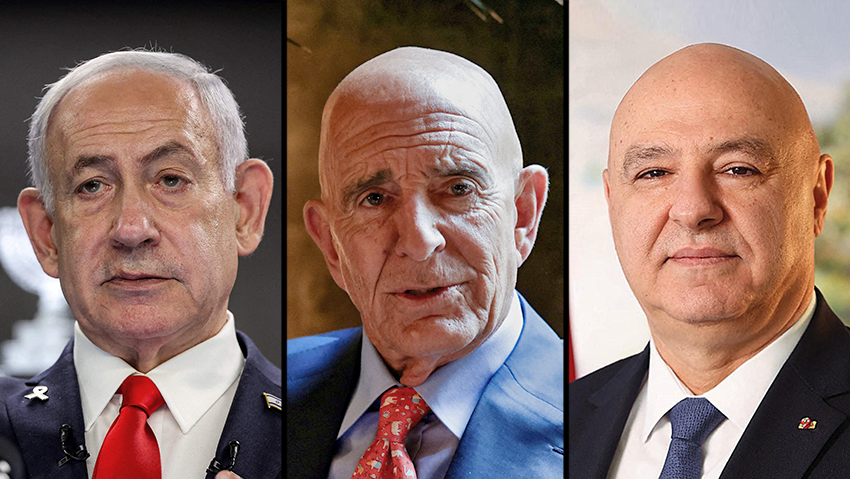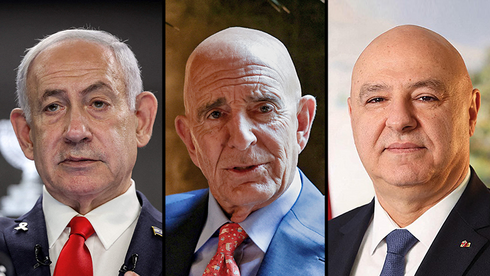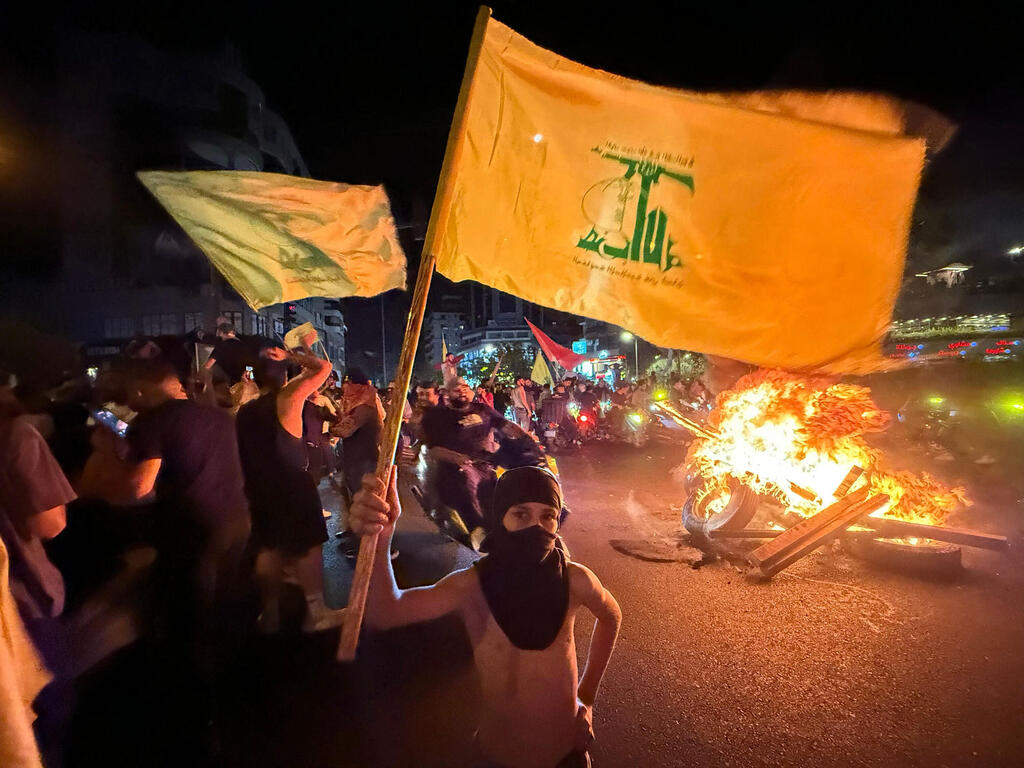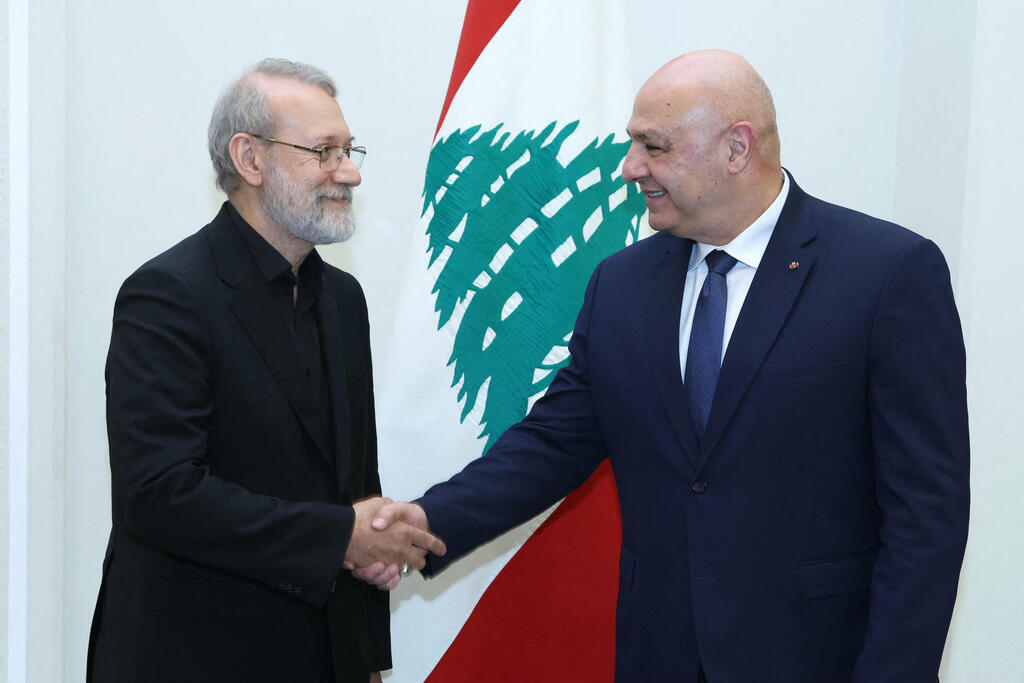Israel has proposed the creation of an uninhabited economic buffer zone along its northern border with Lebanon, Lebanese channel Al-Jadeed reported Saturday, as part of ongoing diplomatic efforts to reduce tensions and prevent renewed clashes with Hezbollah.
The proposal, yet to be independently verified, was allegedly conveyed during a meeting in Paris this week between Strategic Affairs Minister Ron Dermer and U.S. envoy Thomas Barrack. According to the report, Dermer presented Israel’s response to a draft document initiated in Washington aimed at resolving internal Lebanese issues and establishing new security arrangements between Jerusalem and Beirut.
Hezbollah supporters protest against the Lebanese government
(Video: Al Hadath)
While Israel reportedly accepted only parts of the document—described in Al-Jadeed as a “rejection of the Barrack paper”—it expressed willingness to gradually reduce military strikes and operations, withdraw from some contested areas and address the issue of Lebanese detainees. However, a central Israeli demand stood out: that the devastated border zone not be repopulated, and instead be designated as a Lebanese-run industrial corridor.
Under the plan, the area would be used for state-operated factories and separated from Israeli communities on the opposite side of the border. The report characterized it as a “civilian-free industrial buffer zone,” and suggested that recent IDF incursions along the border may be part of an effort to shape such a corridor.
3 View gallery


Benjamin Netanyahu, Thomas Barrack, Joseph Aoun
(Photo: ABIR SULTAN / POOL / AFP, AFP PHOTO / HO / LEBANESE PRESIDENCY, REUTERS/Emilie Madi)
Internal Lebanese tensions are also intensifying, with friction between President Joseph Aoun and Hezbollah over weapons policy. Efforts to mediate the dispute included a meeting between Hezbollah parliamentary leader Mohammad Raad and a presidential envoy. According to Al-Akhbar, Raad reaffirmed Hezbollah’s firm opposition to disarming and urged the government to reverse its position.
In contrast, the anti-Hezbollah daily Nidaa al-Watan published an editorial titled “Iran Commands, Hezbollah Executes: Lebanon is a Hostage of Regional Influence.” The piece argued that rising criticism of Prime Minister Nawaf Salam and hostility toward Saudi Arabia are part of a broader strategy to entrench Iranian control. An unnamed U.S. diplomat quoted in the article warned Lebanon is at risk of deep crisis if efforts to transfer weapons to state control fail—adding that renewed military confrontation with Israel could not be ruled out.
The same report claimed that Hezbollah, following a visit to Lebanon by senior Iranian security official Ali Larijani, held intensive meetings with representatives from Hamas and Palestinian Islamic Jihad, discussing various escalation scenarios, including organized protests and media campaigns portraying the government as ineffective.
Despite these developments, Lebanon’s official government has reiterated in recent months that it opposes foreign interference in its domestic affairs—a message President Aoun reportedly conveyed directly to Larijani during his recent visit to Beirut.








